【新唐人2011年5月4日訊】今年爆發的阿拉伯世界民主革命,是一次社會底層和中產階級的運動。西方的輿論界廣泛認為,「中產階級」有著反叛現有政權的革新精神,是自由、民主建設的重大動力。可是,這種西方的學說是否適合於中國的現狀呢?中國的中產階級是否能成為民主運動的主要推動力量?請看專家的分析。
德國《法蘭克福匯報》最近刊登了一篇題為《消費者不造反》的文章。文章認為,中國的中產階層雖然迅速增長,作用卻不同於歐美歷史上的中產階層,他們滿足於享受富裕,缺乏政治訴求,這樣對北京政權有利。
文章說,中國的群體性衝突大都是被剝奪財產、環境危機、物價上漲或者工資衝突,主要涉及農民、農民工,很少涉及城市中產階層。
西方的社會學家和政治學家們都很關心:中國的中產階層追求甚麼目標?是否會在政治上有所表現呢?
中國問題專家程曉農提出,西方社會的中產階級是在自由經濟中自然形成的,與中國的中產階級來源不同。
程曉農:“今天的中國,中產階級就是兩部分,共產黨的各級幹部,再就是依靠共產黨做生意的人。這樣的人發了財,他們想的第一件事是入黨,第二件事是當政協委員、當人大代表,戴上個“紅帽子”,你認為這些熱衷於戴上“紅帽子”的商人真的關心民主自由?從這個道理上講,中國的中產階級完全是共產黨養出來的。”
程曉農還指出,中國的知識份子也可以被稱為中產階級,但大多數的知識份子也是靠依附共產黨而活的。
程曉農:“你幾時看到有知識份子在敢於批評政府的?有少數那麼幾個能夠有自己的獨立立場,不是被打壓,就是被批判,再不然被趕走了。所以,現在知識份子在中國也不是能夠發揮作用的、相對獨立的社會群體,他們現在基本上是靠中國共產黨賞飯吃的。”
今年年初,中國社科院對外發佈說,目前中國中產階層的規模約為總人口的23%左右。但這個數據遭到廣泛質疑。
杭州民主法律顧問陳樹慶:“在我們國內很多白領,絕大多數白領,除了政府機關的以外,尤其是公司裡的,包括管理人員、文職人員,我認為,他的身份看上去是中產階級,實際上他自己的財富是沒有資格來說是中產階級的。“債奴”的生活,危機感很強。”
《消費者不造反》這篇文章寫道:找工作,買房,結婚,照料父母,期待這些疲於奔命的中產階層去解救國家,也許是過分的要求。
對於依附體制存在的部分中產階級,比如國家機關以及事業單位的工作人員,陳樹慶指出,他們內心深處並沒有對民主、法制、人權的要求和願望,喊口號也是趕趕時髦、發發牢騷而已。所以,他認為,中國中產階級追究公平正義、民主自由的力量現在來說並不強大。
那麼,是甚麼造成了中國中產階層與西方的中產階層有如此大的差異呢?
程曉農和陳樹慶一致認為,共產黨一開始掌握政權到現在,恐怖和謊言就是它的兩大法寶。共產黨的洗腦和政治上的高壓專制,讓所有人都喘不過氣來。
對於中國中產階層最終能否像阿拉伯國家的中產階層那樣,提出民主訴求,成為民主運動的主要力量,程曉農認為,在西方國家發生的事情,目前在中國還不具備發生的條件。
陳樹慶則表示,這種狀況,隨著時間的推移,會漸漸改變。遲早有一天,中國中產階層會認識到,這個社會制度對每個人的權利、幸福、尊嚴的重要性,到那時,他們也會變成民主運動的強大力量的。
新唐人記者張麗娜、李靜、 蕭宇採訪報導。
Can China』s Middle-Class Bring Democracy?
The recent revolutions in the Arab world are
lower- and middle-class uprisings.
Western media saw the revolutionary spirit in the
“middle class” as a powerful drive for democracy.
Is this also true for China?
Will China』s middle class become
the force behind democratic movements?
According to Frankfurter Allgemeine Zeitung (FAZ),
though the middle class is growing fast in China,
it is different from its Western counterparts.
China』s middle class chases after wealth,
and lacks political pursuits,
which is beneficial to the Beijing government.
The article says most mass incidents in China
are triggered by environment crises, inflation,
property demolitions, and salary disputes.
They mostly involve peasant and immigrant workers,
and seldom concern urban pollution and middle class.
Western social and political scientists question:
what goals is China』s middle class pursuing?
Will they perform politically?
China expert Cheng Xiaonong believes that
middle class in Western societies formed naturally
in a free economy, which is different from China.
Cheng Xiaonong: “In today』s China,
the middle class consists of two groups:
the various levels of party leaders,
and the business people relying on the party.
Once these people become rich, they want
to join the party and become congress deputies.
Do you think these people who wear “red hats”
would care about freedom and democracy?
In this sense, China』s middle class
is cultivated by the communist party.”
Cheng believes intellectuals in China can also be
considered middle class, but most intellectuals
rely on the Chinese Communist Party (CCP) as well.
Cheng Xiaonong: “When do you see intellectuals
criticizing the government? A few of them, who have
independent opinions, are oppressed or expelled.
The intellectuals in China are a relatively
independent and ineffective group
that lives off the party.”
Chinese Academy of Social Sciences announced
early this year that China』s middle class
constitutes 23% of the population,
a number that has been widely questioned.
Legal council Chen Shuqing: “A lot of white-collars
in China, other than those who work in government
agencies, cannot really be considered middle class,
especially not those who work in corporations in
administrative and clerical positions.
They look like white-collars, but they live as
“debt slaves” under a lot of financial pressure.”
The FAZ article says: “Career, housing, marriage,
and taking care of parents...
It may be too much to expect
the busy middle class to save the country.”
According to Chen, middle class within the system,
such as government agents, do not aspire to
democracy and human rights. They shout slogans
from time to time to vent and be fashionable.
Therefore, China』s middle class is not a strong force
behind the pursuit of democracy and justice.
What is causing the great differences between
Chinese and Western middle classes?
Both Cheng Xiaonong and Chen Shuqing think that
the CCP regime has been ruling with terror and lies.
Its brainwashing and political coercion
is suffocating.
When asked whether China』s middle class can lead
democratic movement like the middle class in the
Arab world, Cheng Xiaonong said China did not have
the conditions necessary for it to happen.
Chen Shuqing believes, however, that the situation
will change with time; and it is a matter of time
until the middle class in China realizes
that the political system is critical
to people』s rights, happiness and dignity.
And then they will also become a powerful force
behind democratic movements.
NTD reporters Zhang Lina, Li Jing and Xiao Yu
看下一集
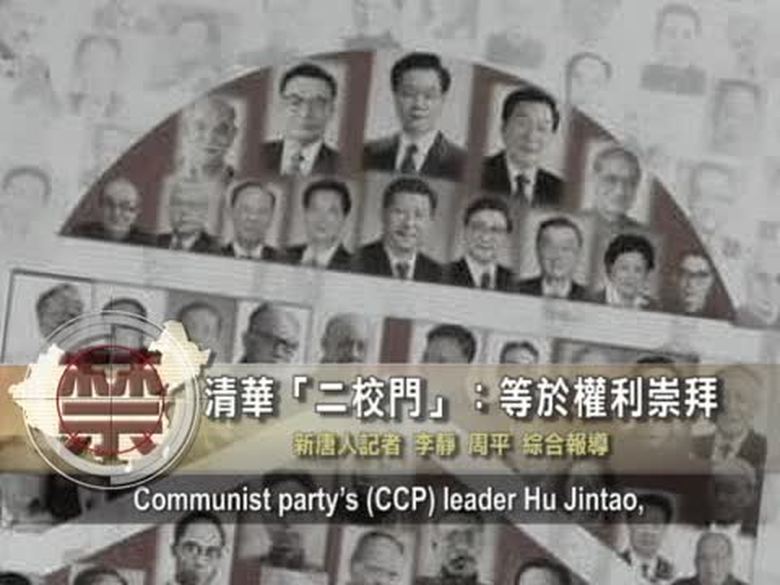
【禁聞】清華“二校門”:等於權利崇拜

【禁聞】本.拉登之死 牽動世界格局
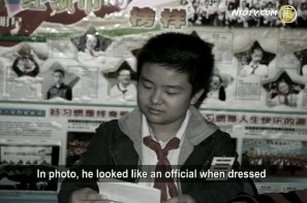
【禁聞】2歲童看“新聞聯播” 眾人擔憂

【禁言博客】為山羊而戰
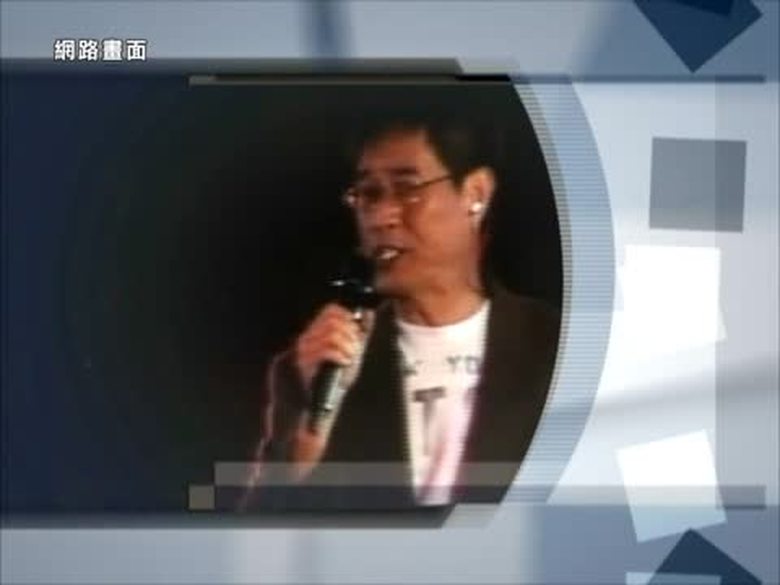
【禁聞】侯德健北京重登臺 6.4話題再起

【禁聞】本.拉登死 傷心?仇美?

【禁聞】“國網辦”將成立 破網軟件即更新
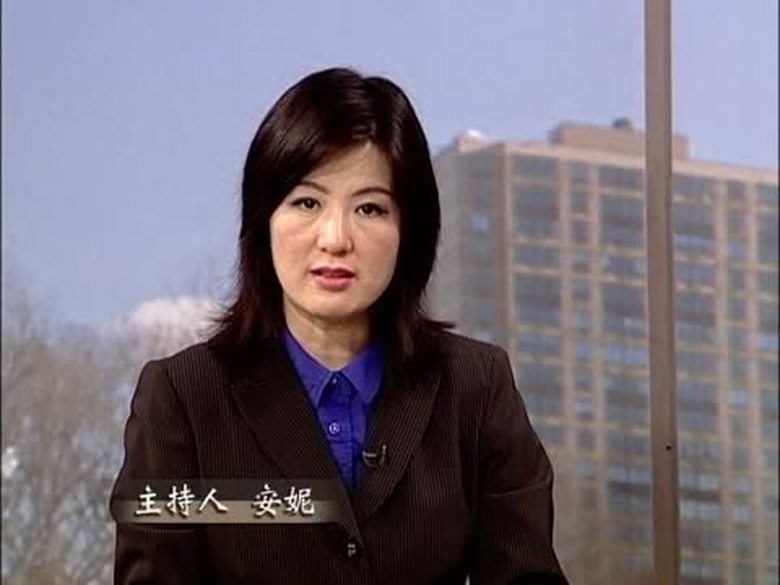
【禁聞論壇】 “精忠報國”還是“精忠報黨”?
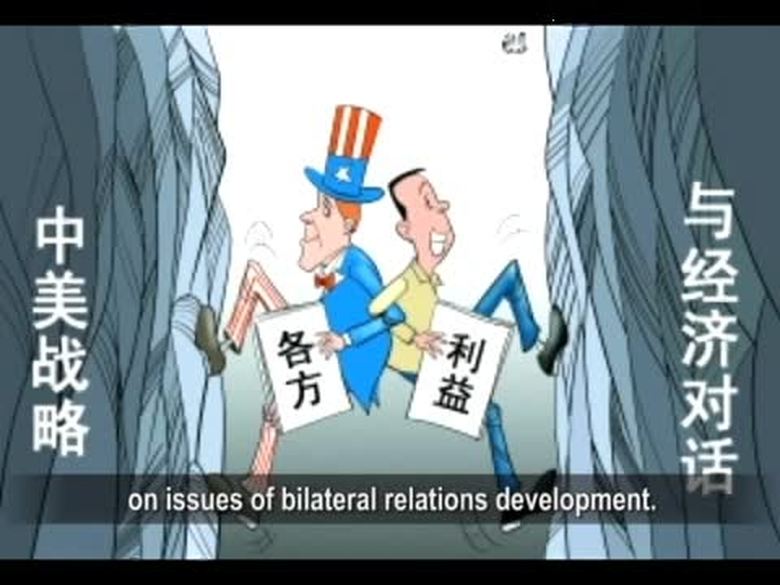
【禁聞】美中對話在即 人民幣匯率仍為重點
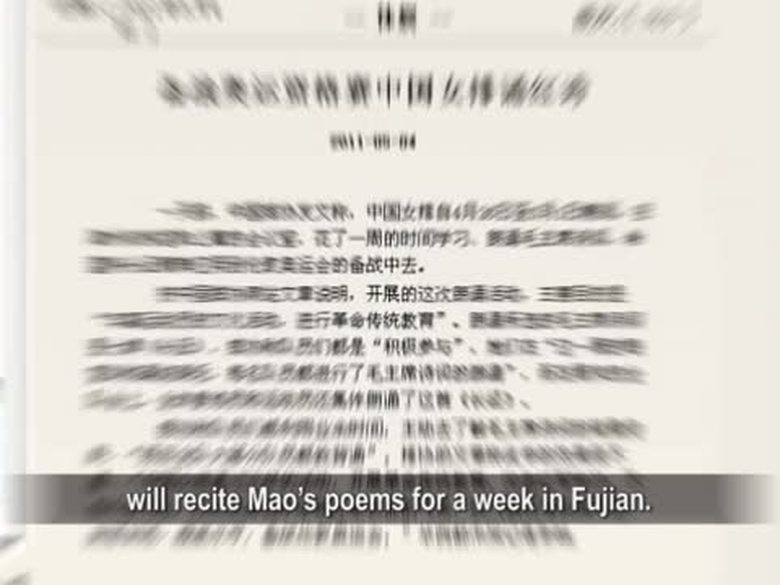
【禁聞】中國女排背毛詩 “紅風”嚇跑外商
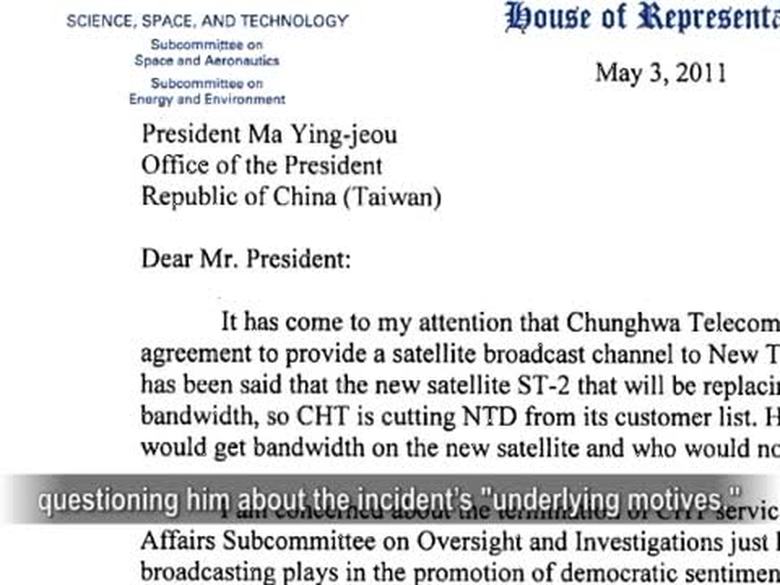
【禁聞】台灣新唐人遭噤聲 美國議員關注
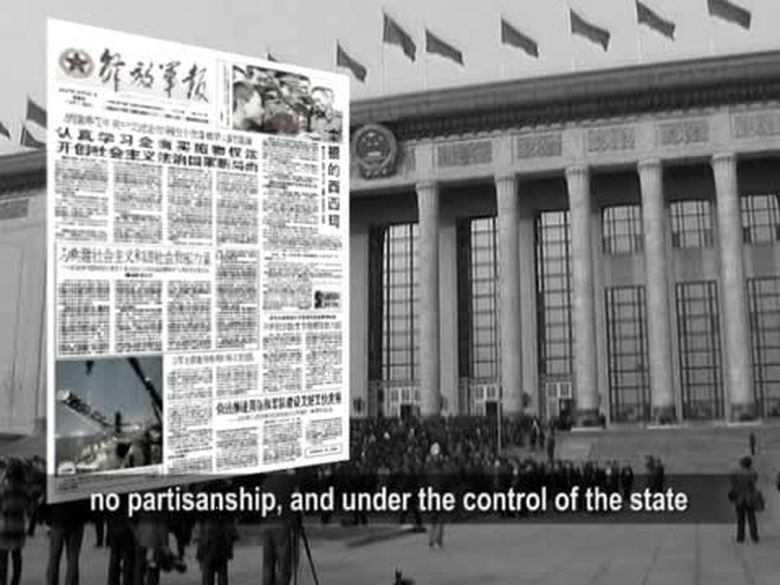
【禁聞】中共軍報披露:退黨在軍內引反響
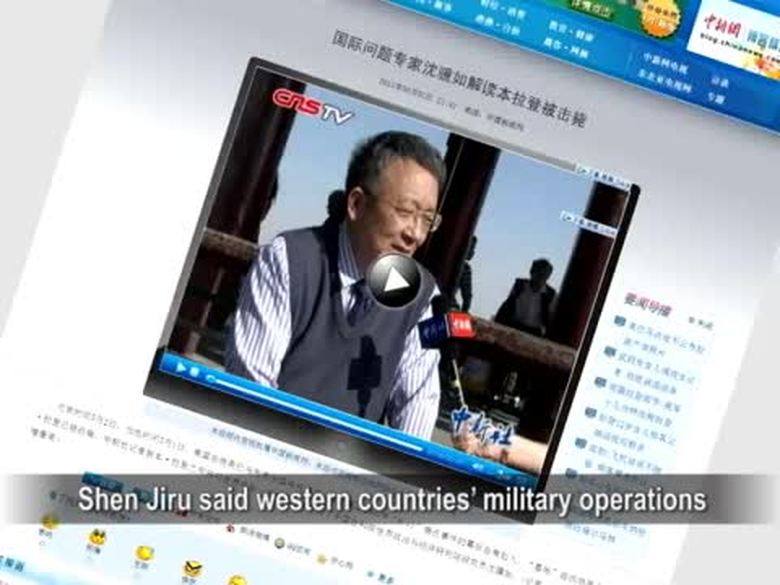
【禁聞】“恐怖主義土壤說” 官民看法不一
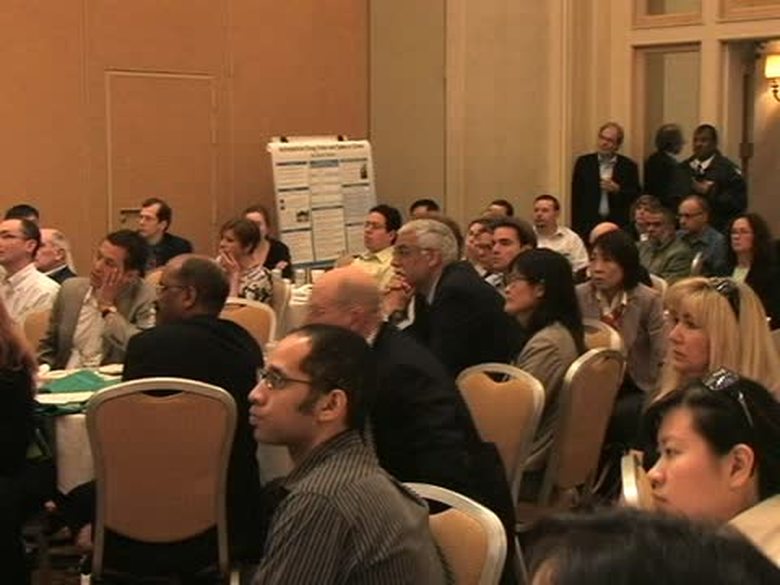
【中國禁聞】美器官移植界擬禁止與中共交流

【禁聞】美參議警告百度 放鬆網路審查
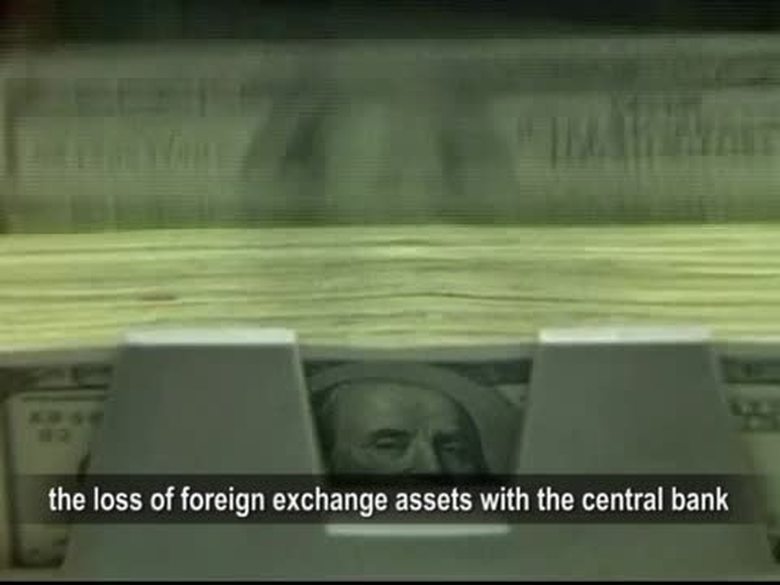
【禁聞】外匯損失驚人 中共做傻事?








